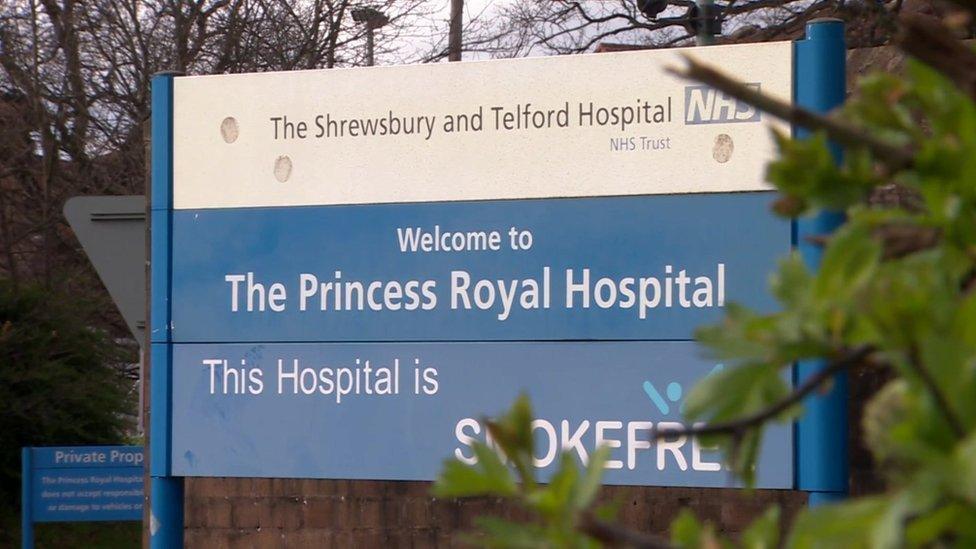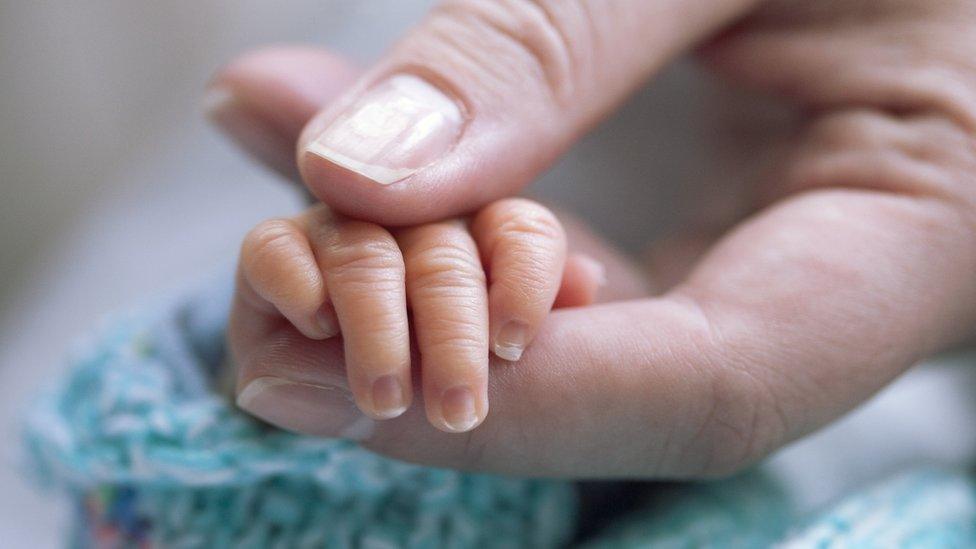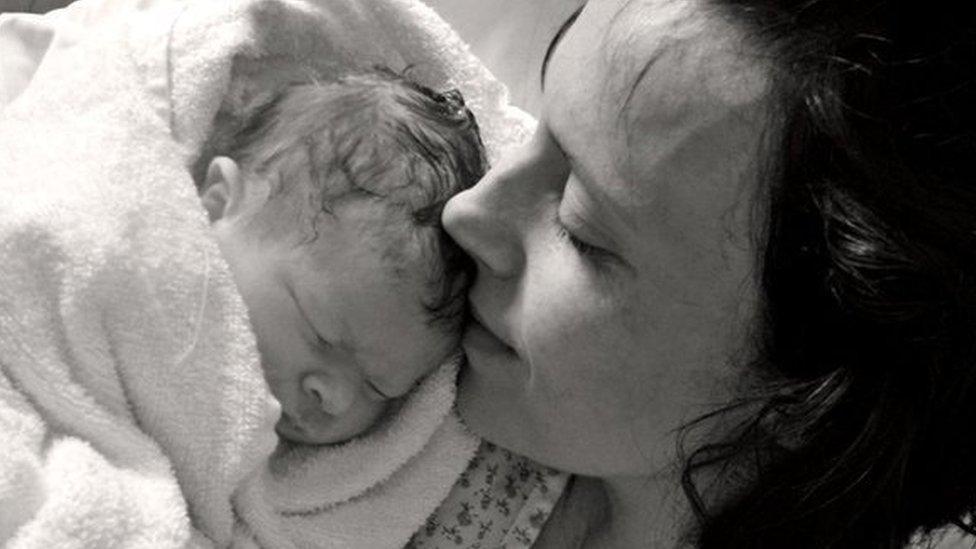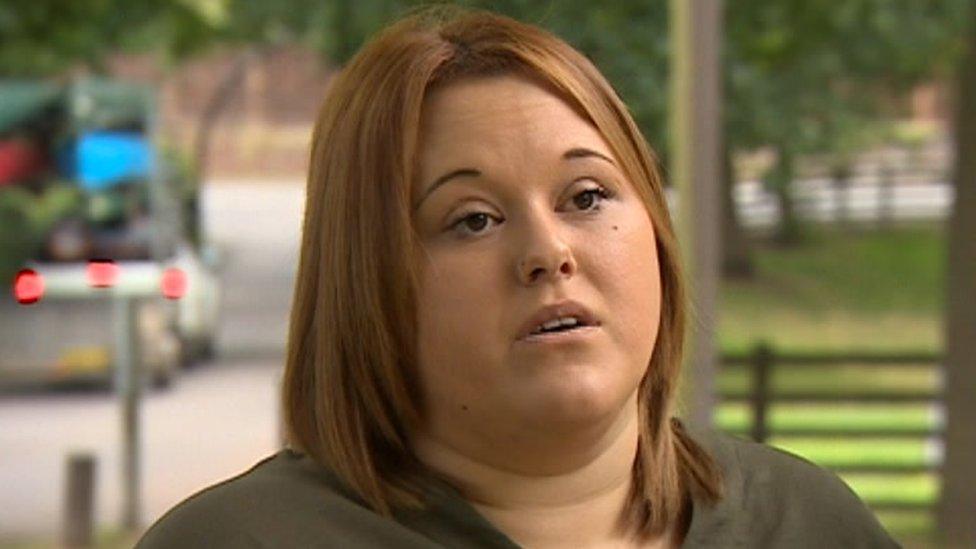'Disturbing' new issues at Shropshire baby deaths trust
- Published

Shrewsbury and Telford Hospital Trust is at the centre of the largest ever inquiry into NHS maternity care
Nearly half of the serious incidents at a hospital trust earlier this year were maternity-related - a situation described as "disturbing" amid wider safety fears.
About 1,900 maternity cases were already under review at Shrewsbury and Telford Hospital (SaTH) Trust.
But new data shows 45% of serious incidents in July, and 25% in August, involved maternity patients.
SaTH says it is acting transparently in reporting issues so they can be probed.
Critics, though, have expressed frustration to the board that events are still occurring even as the trust is under investigation.
The summer incidents included two mothers suffering a major haemorrhage and a baby born with cuts and bruises.
They emerged in trust papers that did not specify the patients' outcomes.
The NHS's classification of serious incidents, external includes those in which the "consequences to patients" are "so significant" they "warrant using additional resources to mount a comprehensive response".
According to SaTH documents, 40 had been reported in 2021/22 by the end of August. In July, there were a total of 11, five of which were flagged under maternity.
Additionally, problems over foetus measurements have emerged in the papers about Royal Shrewsbury and Princess Royal hospitals.
Separately, SaTH's maternity standards are being investigated under the Ockeden Review, a government-commissioned probe and the largest ever into NHS maternity care.
It initially examined 250 cases, uncovering a disproportionately high death rate among the sample, before being widened to focus on nearly 1,900 cases dating back decades.

Richard Stanton called the new issues 'most disturbing'
Among those to examine the latest documents was David Sandbach, a former manager of the Princess Royal Hospital, who said he was deeply concerned services were not improving fast enough.
He said his frustrations included foetuses not being measured properly, with about 90% not "centiled" because newly-installed computer software, Badgernet, was not fully working, which Mr Sandbach described as "unacceptable".
He shared his concerns with the Trust board by letter, also passing them on to Richard Stanton, whose baby daughter Kate Stanton-Davies died due to failings.
Mr Stanton has since written to the board, expressing alarm over Mr Sandbach's concerns.

Kate Stanton-Davies, pictured with mother Rhiannon Davies, died in March 2009
Mr Stanton asked when the trust would robustly deal with poor care and IT problems.
He told the board the highlighted issues were "most disturbing" and "it is on your watch".
SaTH's chief executive, Louise Barnett, told the BBC the trust was committed to always acting transparently, reporting issues, including in maternity, where they can be properly investigated.
She said: "However, as the report clearly sets out, we are constantly reviewing the measures and actions taken to ensure that we make further improvements in these areas."
She added: "The Badgernet paperless maternity record was introduced in our hospitals in August and we have already successfully enrolled 500 women onto the system."
She said steps to deal with issues around foetal development were already being put in place, with measurements being recorded manually.
The trust was working with Badgernet developers to allow data to be entered electronically, she added.

Follow BBC West Midlands on Facebook, external, Twitter, external and Instagram, external. Send your story ideas to: newsonline.westmidlands@bbc.co.uk, external
- Published6 September 2021

- Published25 March 2021

- Published10 December 2020
